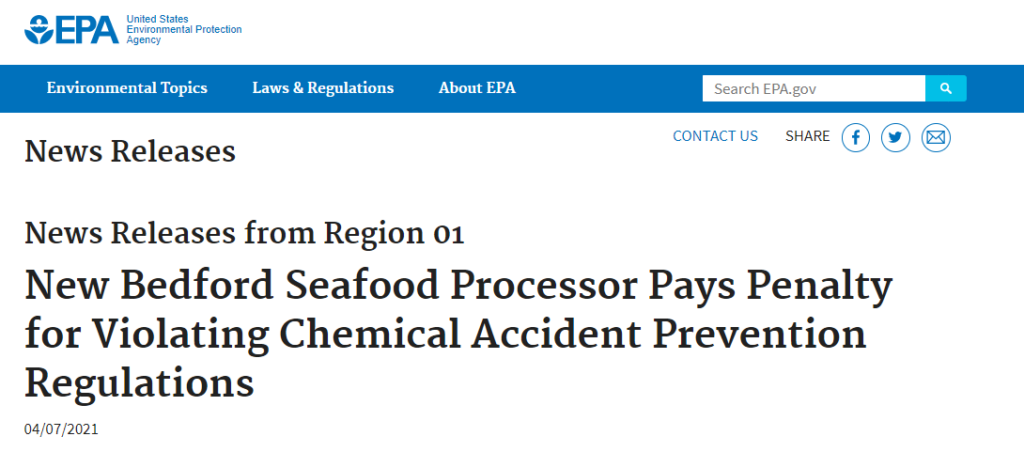For facilities in New England that are not required to submit an RMP because they use less than 10,000 pounds of ammonia, EPA Region 1 is working to improve compliance with the General Duty Clause requirement of Section 112(r)(1) of the Clean Air Act that such facilities identify hazards that may result from accidental releases using appropriate hazard assessment techniques. This compliance effort involves issuing information requests to certain facilities to learn whether they have performed a process hazard review. If a company has not, EPA offers to resolve that violation with an expedited settlement agreement that includes a reduced penalty if the company completes a process hazard review with assistance from a third-party expert and coordinates with emergency responders to plan for a potential release from the facility. Activities under the initiative have included compliance assistance to hundreds of people, information request letters to about 85 companies, and thirteen Expedited Settlement Agreements expected. As a result, all facilities receiving letters report that they have now completed process hazard reviews. Approximately 75% of these were a result of EPA’s General Duty Clause initiative, showing that the compliance rate, absent the effort, was low.
In a settlement with the U.S. Environmental Protection Agency (EPA), Northern Pelagic Group, LLC (NorPel) has agreed to pay a $220,000 penalty to settle EPA’s claims that the company violated the chemical accident prevention requirements of the federal Clean Air Act and the hazardous chemical reporting requirements under the Emergency Planning and Community Right-to-Know Act (EPCRA) at its New Bedford seafood processing facility.
EPA alleged that the company, which maintains a significant amount of ammonia at its New Bedford facility, failed to file a Risk Management Plan (RMP) with EPA. RMPs are required for facilities that manage, maintain or produce hazardous chemicals requiring stringent management to ensure public safety. EPA also alleged that the company had not adequately designed, operated, or maintained its refrigeration system. Finally, NorPel failed to file its annual EPCRA Tier II chemical inventory report for the 2015 reporting year with the state and local emergency response authoritiess

